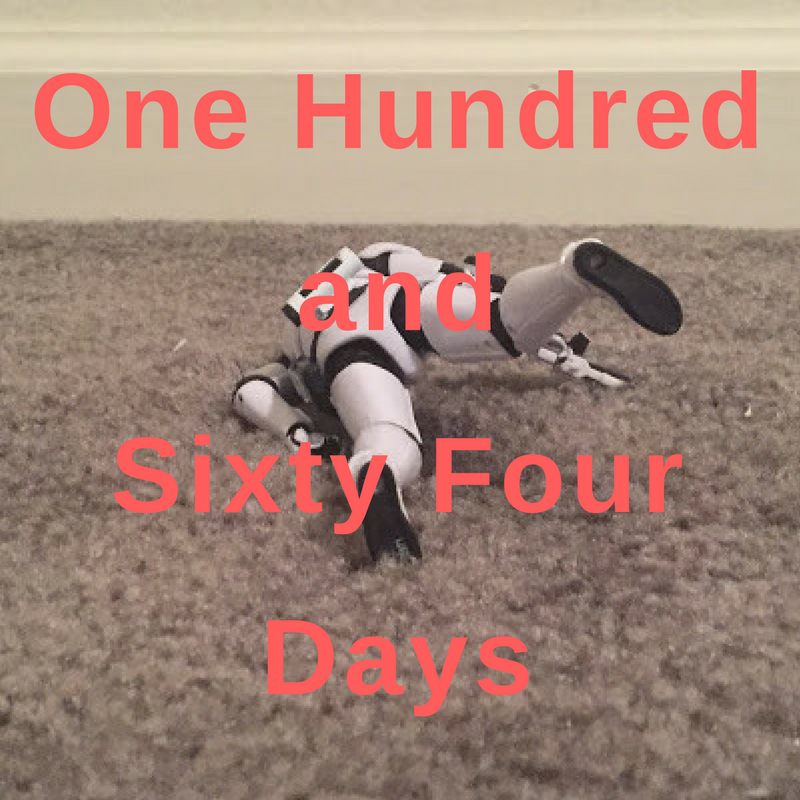Masters of Sex
 Masters of Sex
Masters of Sex is not a perfect show, but so far it's better than it had any right to be.
The series began with a number of obvious strikes against it:
1. A detailed period piece set in the late 1950s, uncomfortably close to the era of Mad Men.
2. It's on Showtime, a network with a history of mismanaging its prestige (or even just decent guilty pleasure) dramas. The twin collapses of Homeland and Dexter are harsh examples for anyone foolish enough to trust the network to shepherd a quality show in the same manner as HBO and AMC. (The only real counterexample, Shameless, remains strong as it heads into its fourth season - but also perpetually underrated, and if anything, poorly promoted by a network that otherwise has every right to be proud of the show's consistency.)
3. This isn't a fictional cast of characters, this is about William Masters & Virginia Johnson, real scientists whose real research had real repercussions across American society and the world. It's hard to overestimate the significance of Masters & Johnson's work, but that very ubiquity could well make it difficult for the show to avoid falling into the mode of breathless hyperbole.
4. It's about sex. Not metaphorically. It's right there in the title. The show does not - cannot, really - shy away from depicting the act in the plainest terms. There's no male full-frontal, but they give us just about everything else, including the view from inside a woman's vaginal cavity as she experiences an orgasm. Given the unavoidably prurient subject matter, and given America's extremely poor track record in ever discussing sex without falling to juvenile titters, the show must walk a fine line between maintaining its dramatic bona fides and succumbing to the temptation towards unvarnished exploitation.
I can't say that the show has successfully managed to circumvent all these potential stumbling blocks. It's not quite out of the woods yet.
But so far, so good.
Yes, it's a costume drama set in the years right before the beginning of
Mad Men. To a degree I feel the show uses that to its advantage: whereas the earliest episodes of
Mad Men lost a lot of time on exposition, simply explaining the context of the early 1960s for an audience primarily composed of people who had not yet been born (go back and watch those first few episodes - they really are a drag),
Masters of Sex didn't need to spend near as much time on this kind of contextualization. Watching the first episodes, I feel as if the show took advantage of the fact that a large percentage of its audience could be assumed to be familiar with
Mad Men: we already know the milieu. There are far fewer of those groan-inducing moments of Sally Draper wandering around with a dry cleaning bag over her head, or the children jumping around the inside of the car without a seatbelt in sight, to illustrate just how different the world of the past was. We get it.
I don't think there's anything wrong with this. It's no different, really, from the way in which new doctor shows assume the audience's familiarity with the hospital milieu - and the conventions of generations of previous doctor shows. The well-heeled, exquisitely detailed mid-twentieth-century period piece is a thing now, and I don't think
Masters of Sex will be the last show to follow the lead of
Mad Men. AMC has another new drama coming down the pike,
Halt & Catch Fire, that sounds even more explicitly cut from the
Mad Men cloth, if the advance hype is to be believed. All to the good.
What really elevates
Masters of Sex, and the number one factor that makes me believe the show will outpace its potential shortcomings, is the acting. No flies on Lizzy Caplan (although, to be honest, I keep wondering how she gets so much time off from her catering job), but the show belongs to Michael Sheen. I don't really want to compare his work here to that of Jon Hamm, because that's a completely facile and obvious comparison, but for all that it's still an inevitable comparison. As different as Don Draper and William Masters are, both characters serve as the centripetal force that unifies a large and diverse ensemble cast. Both Hamm and Sheen (and Steve Buscemi too, for that matter) are very comfortable standing stock still and allowing the rest of the show to happen around them. They are the immovable objects around which the drama revolves.
The difference, however, is that Don Draper - for all his transgressive behavior - remains deeply invested in the
status quo. One of the overarching themes of
Mad Men, when taken as a whole, is Don's growing impotence in the face of cultural upheaval. For all his personal demons, he was really quite fond of his life circa 1960, and his frustration at being unable to move the clock back is perhaps the show's central narrative. William Masters could not be more different. Masters is not helpless in the face of cultural change: he
is a force for cultural change. We as viewers know this is true because we know just how famous Masters & Johnson eventually became, and how many copies of
Human Sexual Response were sold.
The problem with this kind of narrative is that it can be difficult to balance the needs of fiction against the needs of following the template of real-world history. This is the knife's edge that
Boardwalk Empire has been walking for some time now: the introduction of Al Capone and the subsequent Chicago gang wars constantly threaten to wrench the narrative away from its (fictional) grounding in Atlantic City. The fact that we know Al Capone is a figure of historical import presents a challenge to the writers faced with the unenviable task of keeping Capone
in the story without having Capone
become the story to the detriment of the rest of the show's wide array of (mostly fictional) gangsters and goons. The singular importance of Masters & Johnson to twentieth-century cultural history is both the greatest strength of and greatest potential weakness facing
Masters of Sex: we want to know how it turns out, even if we know how it turns out. We have no idea what happens to Don Draper at the end of
Mad Men, but barring a strange Tarantino-esque left turn, we know that William Masters dies in 2001 at the age of 85, married thrice, with Virginia Johnson as his second wife from 1971-1992. (Sorry for the "spoilers.") This isn't the first television program to face the challenge of coloring inside the lines of history while remaining fresh, but it
is a challenge nonetheless.
The great irony at the heart of
Masters of Sex is that even though William Masters believes with confidence that his great work on human sexuality will change the world, he remains personally unable to understand just how these changes will effect the world immediately around him. The show portrays him as cold and distant, an extremely practical and precise clinician who is nevertheless compelled to risk his sterling reputation on a potentially ruinous course of research. So far, with the first season almost on the books, William Masters remains something of an enigma: we know a little bit about an unhappy childhood, we know he is extremely repressed (but then, so is just about everyone), and further than that, he is pathologically unable to express even the most simple human emotions. Certainly it makes sense that such a stolid individual would be drawn to the most seemingly chaotic, messy, and disreputable field possible. But at the same time there is still something missing from Masters that keeps the audience from identifying too closely with such a genuinely troubled (and genuinely brilliant) person. He's really not very nice. To be precise: he is consistently callous and distant, and often seemingly malicious for no reason other than simple caprice. He is dangerous and ruthless, and willing without a second thought to blackmail his closest friends in order to fund his research. He is attractive because of his confidence and his intelligence - and both attributes are well illustrated by Sheen's performance - but there is also something very essential absent from his makeup. We are consistently rooting for him to be a decent human being, and he consistently fails.
The closest we get to understanding Masters over the course of the season - to date - is a comment towards the end of the most recent episode. His wife asks him if, when his research is published and his findings are accepted and his genius is acclaimed, he won't then be content with his accomplishments. He replies to her, simply, "there's always something to prove."
The show has improved dramatically since its first episodes. The beginnings of great series are never quite as auspicious as we would like them to be, in hindsight: the first couple episodes of
Mad Men are inert; the first episode of
The Wire is ham-fisted and on-the-nose in a way the show would never again be; and the first truncated half-season of
Breaking Bad was so boring it scared me away from the show for years afterward. True to form,
Masters of Sex takes a while to get going. The show needed to move past the shock value of its own sexual content before it could settle in to a comfortable groove. There are of course a few inevitable scenes of 1950s yokels tugging on their proverbial collars and exclaiming "Gollee!" at the sight of a pretty woman. There's a terrible, terrible metaphor involving a completely period-
inaccurate comic book story, at which everyone reading this will probably cringe. Not the type of bush-league mistake Matthew Weiner would ever make, not on his worst day.
But the show improves. The second half of the season makes a case for the show as a serious contender. Once past its earliest fumbles it begins to gather steam at an impressive rate. I think, if
Masters of Sex continues on to become the show it could be, episode ten of this season, "Fallout," may come to be regarded as the tipping point: finally, the show managed to stick the landing completely. There's a distinctive tone here that could bode well in terms of the show being able to carve out an identity for itself outside the expectations of previous prestige dramas. You have serious melodrama (the question of who impregnated Masters' wife) overlaid by brief flashes of farce (the nuclear strike drill), mixed with workplace drama and serious character work, all built around a genuinely shocking fist-fight. But if, after this one season, we can identify a singular motif for the program, it's the continuing, repeated trauma of very unhappy people slowly coming to realize for the very first time that they actually
are unhappy, and struggling blindly for ways in which to make themselves feel better. The moment Masters begins his sex study, things begin to change. It's the catalyst, the first domino that sets off a chain of completely unintended and yet also inevitable consequences. These unintended consequences comprise the show's narrative. "Fallout" is the moment when it becomes obvious for the first time, to the viewers if not to the characters themselves, that there is no way to put this genie back in the bottle. Under the unifying metaphor of nuclear annihilation, the show asserts the presence of a very different, and not completely malign kind of catastrophic change.
If
Mad Men is the story of people profoundly unready for the massive systemic changes of the 1960s,
Masters of Sex is the story of people
desperate for change, who can see even the slightest glimmer of uncertainty on the horizon as cause not
just for dread but for for hope as well. We can discuss whether or not certain of the individual storylines cohere or convince. I think, in this instance, that even if some of the notes across the different supporting plotlines are familiar, the sum definitely adds up to something greater than its parts. It started off shaky on its feet, but gained confidence throughout the season. I would not be surprised to see the program win a few Emmys right out of the gate. This is exactly the kind of show that you wouldn't think was being made anymore, to go by all those breathless post-
Breaking Bad think-pieces about the decline and fall of quality television. It's good, it's thoughtful, and it obviously has the potential to become even better now that the first season kinks are well worked out.
The question remains as to whether or not it will be allowed to achieve its full potential. Showtime is the variable quantity here: if
Masters of Sex were on HBO or AMC, we wouldn't feel the need to hedge our bets quite so fastidiously. Showtime has proven that they have no compunctions whatsoever about meddling with even the most successful formulas, with horrible results. The downfall of
Homeland has already become idiomatic for precisely this type of creative implosion. With this specter haunting our thoughts, the wait between this coming Sunday and Fall of 2014 will be a very long year indeed.




